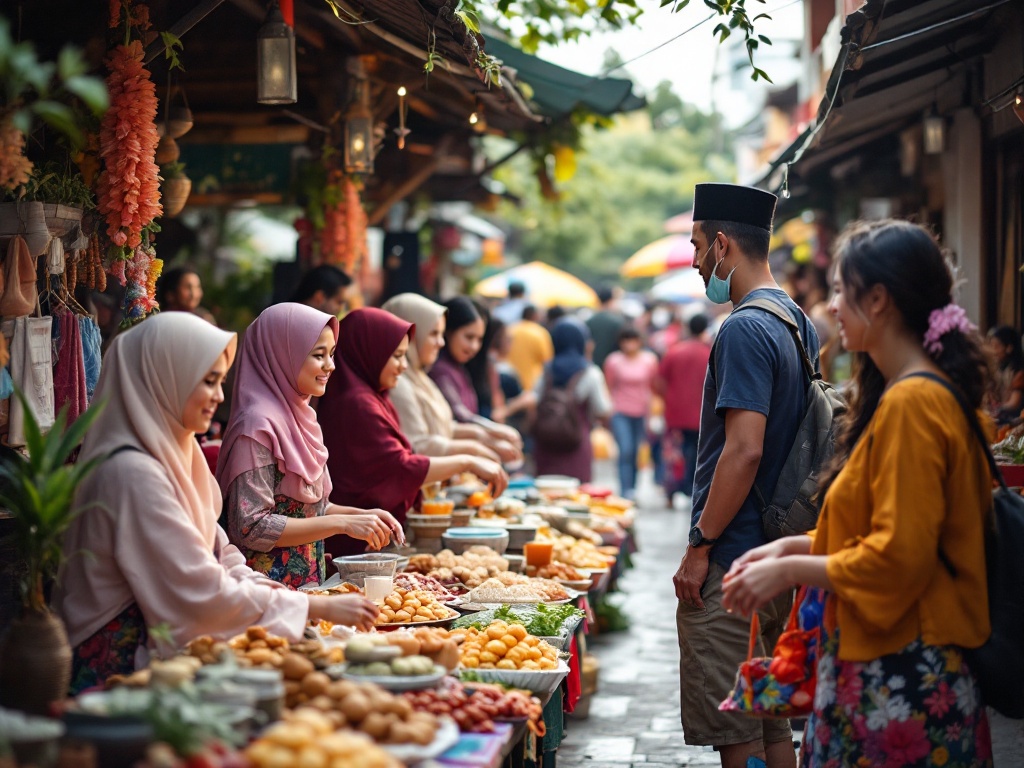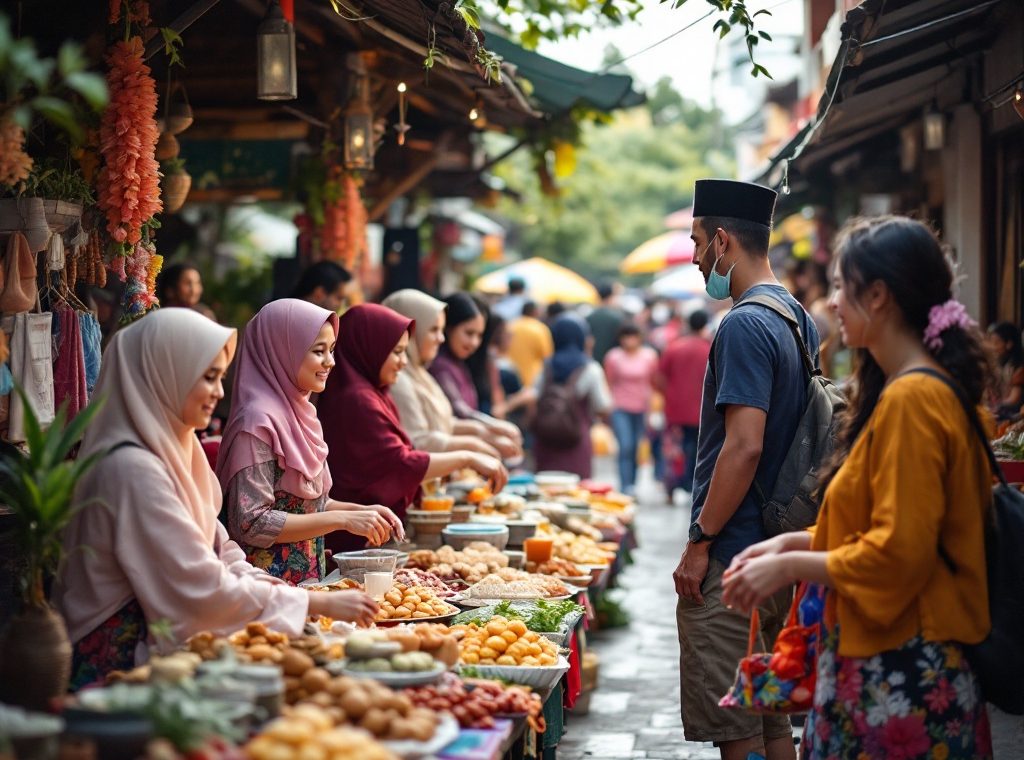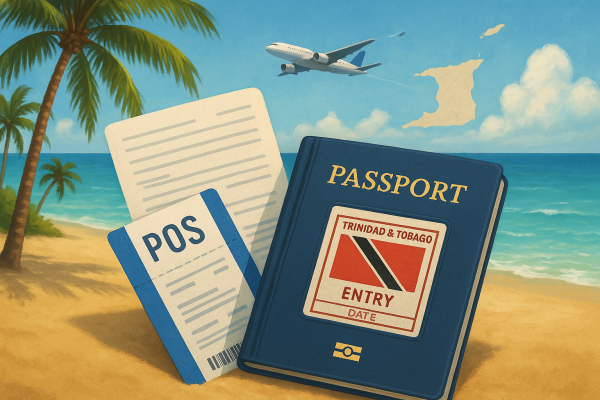Common Tourist Mistakes in Malaysia
Planning a trip to Malaysia? Discover how to avoid common cultural missteps and enjoy a truly immersive experience. Learn essential etiquette, from proper dining practices to respectful interactions, and understand why seemingly simple actions, like using your left hand or pointing with your finger, can be offensive. Explore tips on modest dress, bargaining respectfully, and navigating sensitive topics. Prepare for your Malaysian adventure and embrace the local culture with confidence. Read on to ensure a smooth and enriching journey.
Important information

- Show respect by using your right hand for eating, greeting, and giving/receiving items.
- Dress modestly, especially at religious sites, and remove your shoes before entering homes and religious places.
- Avoid public displays of affection, touching someone’s head, and pointing with your finger or feet.
- Refrain from discussing sensitive topics like politics, religion, and race, and avoid comparing Malaysia to Singapore.
- Bargaining is acceptable in markets, but do so politely and respectfully.
Avoid Common Tourist Mistakes in Malaysia
Respect local customs when visiting Malaysia. Use your right hand for eating and greetings. Remove your shoes before entering homes and religious sites. Dress modestly, especially in mosques or temples. Avoid public displays of affection. Refrain from touching anyone’s head, pointing with your finger or feet, and speaking loudly. Dispose of your trash responsibly. Bargaining is acceptable, but be polite and avoid aggressive haggling. Avoid discussing sensitive topics like race, religion, and politics, and respect local customs without criticism.For those entering Malaysia, remember that the Malaysia Digital Arrival Card is required. You can find more information at Malaysia Digital Arrival Card.
Dining and Culture
Enjoy Malaysia’s diverse cuisine, but avoid unfavorable comparisons to other countries’, especially Singapore’s. Learning basic Malay phrases will enhance your experience. Explore famous attractions and discover hidden gems.
Practical Tips for Travel
Pack light clothing, rain gear, and sunscreen for the tropical climate. Tipping is not required, but appreciated for good service. Use ride-hailing apps for reliable transportation.
Etiquette in Malaysian Culture
When you visit Malaysia, embrace the local culture by being mindful of a few customs. Avoid public displays of affection. Use your right hand for eating, greetings, and giving or receiving items. Remove your shoes before entering homes and religious sites. Never point with your index finger or feet, and avoid touching anyone’s head. Keep noise at a reasonable level in public spaces. Dispose of your trash responsibly. Bargaining is acceptable, but always be polite. Steer clear of sensitive topics like race and religion. Refrain from criticizing local customs or the cuisine. Avoid comparing Malaysia to Singapore.
Avoid public displays of affection.
Use your right hand for eating, greetings, and giving or receiving items.
Remove your shoes before entering homes and religious sites.
Never point with your index finger or feet and avoid touching anyone’s head.
Keep noise at a reasonable level in public spaces.
Dispose of your trash responsibly.
Bargaining is acceptable, but always be polite.
Steer clear of sensitive topics like race and religion.
Refrain from criticizing local customs or the cuisine.
Avoid comparing Malaysia to Singapore.
How to Dress Modestly in Malaysia
When visiting certain regions, dress modestly. Opt for loose clothing that covers your shoulders, chest, and knees. Avoid tight or sheer attire. A headscarf is recommended for women at religious sites. While swimwear is acceptable at beach resorts, dress more conservatively in other public areas. Some states, such as Terengganu and Kelantan, have stricter dress codes. Be mindful of local customs.
What Is the Dress Code for Religious Sites?
When visiting religious sites, dress modestly and respectfully. Covering your shoulders and knees, and avoiding tight or revealing clothing, demonstrates reverence for these sacred spaces. This shows respect for local customs and traditions.
Why Removing Shoes Is Important in Malaysia
In Malaysia, removing your shoes is a sign of respect and helps maintain cleanliness. This custom is common in homes, places of worship, and some businesses. A pile of shoes at the entrance is a visual cue to remove your own.
How to Avoid Being Too Physically Affectionate
In Malaysia, it’s best to avoid public displays of affection such as kissing and hugging. These actions are considered inappropriate by local customs.
What Are Public Displays of Affection in Malaysia?
When traveling, be mindful of public displays of affection. Kissing, hugging, and even holding hands may be considered inappropriate in certain cultures. Excessive touching is particularly discouraged, especially in conservative regions. Respecting local customs by refraining from such displays demonstrates cultural sensitivity and helps avoid unwanted attention.
Should You Shake Hands Without an Invitation?
When in Malaysia, be aware of local customs regarding handshakes with the opposite gender, especially within Muslim communities. Physical contact is sometimes avoided, so it’s best to wait for a gesture indicating it’s appropriate before offering your hand.
Why Shaking Hands with the Opposite Sex Is Discouraged
In Malaysia, shaking hands with the opposite sex is generally avoided due to Islamic customs promoting modesty. Do not misinterpret a declined handshake as rudeness; it is often a sign of respect for local traditions.
Why Is Using the Left Hand Considered Impolite?
In Malaysia, it’s considered impolite to eat or handle items with your left hand, as it’s traditionally used for bathroom hygiene. Instead, use your right hand for eating, giving, and receiving to show respect for local customs.
Why Pointing with Forefinger Is Rude
In Malaysia, it’s considered impolite to point with your index finger. Instead, use your thumb or gesture with your entire hand to show respect for local customs.
Why Pointing with Feet Is Disrespectful
In Malaysia, feet are considered the lowest part of the body, both literally and figuratively. Therefore, pointing with your feet is impolite and should be avoided.
How Touching Someone’s Head Can Be Offensive
In Malay culture, the head is considered sacred, so touching someone’s head, especially a child’s, is considered deeply disrespectful. Avoid this gesture entirely.
What Makes Being Loud in Public Impolite?
In Malaysia, maintaining social harmony is paramount, and this is reflected in their communication style. Malaysians value quiet conversations as a sign of respect. Loudness can be interpreted as disrespectful.
How Littering Shows Disrespect for Malaysia
Littering degrades Malaysia’s environment and disrespects its citizens. It mars the country’s natural beauty and threatens fragile ecosystems. Tourists can demonstrate respect by properly disposing of their waste in provided receptacles. This simple action safeguards Malaysia’s beauty for everyone and helps preserve the environment. Do your part to keep Malaysia clean.
How to Haggle Without Being Rude
Bargaining is a common practice in Malaysian markets. Be respectful and courteous, as aggressive behavior is frowned upon. Avoid confrontation; if a price can’t be reached, politely refuse and simply continue browsing.
Discussing Sensitive Topics: What to Avoid
When interacting with people in Malaysia, it’s best to steer clear of potentially sensitive topics. These include politics, religion, race, ethnicity, and the royal family. Because Malaysia is a multicultural society, such discussions, especially with people you don’t know, can easily create discomfort and be misinterpreted.
Why Race and Religion Are Sensitive Topics
Traveling in Malaysia offers a rich cultural experience, encountering diverse ethnicities like Malay, Chinese, and Indian communities. However, discussions surrounding race and religion can be sensitive due to historical socio-economic factors. To ensure respectful interactions and avoid causing offense, it’s advisable for tourists to refrain from engaging in these topics. Prioritizing mindfulness and respect will contribute significantly to a positive and enriching travel experience in Malaysia.
Why Criticizing Local Customs Is Discouraged
Criticizing local customs can easily lead to disrespect, offending those who value their traditions and causing strained interactions. Moreover, such criticism hinders cultural exchange.
Respecting local customs, conversely, cultivates positive relationships and fosters deeper connections with the community. It shows appreciation for their heritage, ultimately enriching everyone’s travel experience.
Why You Shouldn’t Insult Local Food
Malaysian cuisine reflects national pride and cultural identity, so criticizing it can offend locals. Food is integral to Malaysian heritage, a blend of diverse cultural influences. Negative comments about the food, therefore, can feel disrespectful.
Why Comparing Malaysia with Singapore Is Offensive
Comparing Malaysia and Singapore requires sensitivity due to their complex relationship. Since their separation in 1965, these nations have developed distinct identities while maintaining close ties. Direct comparisons risk oversimplification, neglecting cultural nuances. For example, emphasizing Singapore’s economic progress might overshadow Malaysia’s rich cultural heritage. Conversely, highlighting Malaysia’s diversity could inadvertently undervalue Singapore’s achievements. Respectful discourse necessitates acknowledging the unique strengths of both countries.















